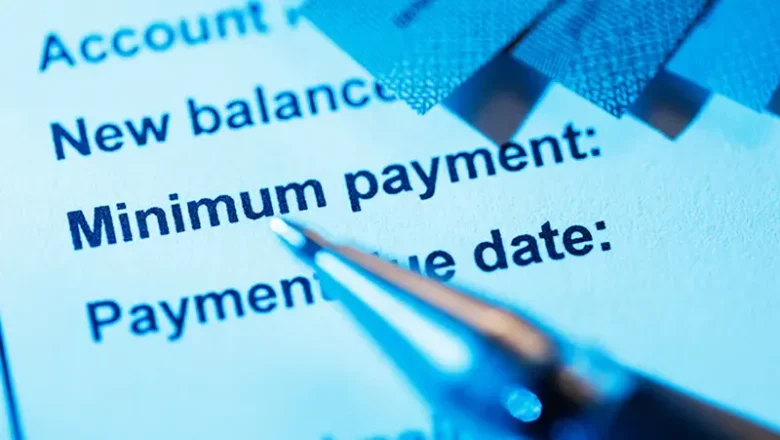
The Impact of Federal Regulations on Payment Processing for Small Businesses
Federal regulations have long been a source of discontent for multiple economic sectors. Businesses and their spokespersons frequently criticize the rules as roadblocks to profits, economic efficiency, and employment growth. In their efforts to comply with rules, many businesses have abused legal loopholes, relocated their operations overseas, and broken antitrust laws.
However, intricate tax laws and an ever-growing list of regulations have helped and hurt American enterprises for EV charging payment processing. As a result, there are two possible modes of interaction between businesses and the government: cooperative and antagonistic. More crucially, the regulations have shielded customers from predatory behavior.
FedNowSM Service

To promote quick payments in the U.S, the Federal Reserve is creating the FedNow Service, a new 24/7 payment and settlement service.
COVID-19 has significantly altered social and economic circumstances in the United States and elsewhere. As sectors adjusted to supply and demand shifts and social distance factors altered payment behavior, the pandemic also impacted the U.S. payments infrastructure. As a result of rising propensities to work or shop from home, customers and organizations adopted new payment technologies or boosted their usage of remote payment options.
If small businesses accept credit or debit cards, several new regulations could help to save money. The regulations, which are a component of the Dodd-Frank Wall Street Reform and Consumer Protection Act, cover a variety of topics, including interchange fees for transactions of debit cards, discounted rates on the purchase price one can offer to the customers when they pay in a particular way, and minimum dollar transaction for credit card purchases.
The Process And The Participants
- Every payment card transaction involves the cardholder paying for a good or service using a debit or credit card.
- The issuer, who gives a cardholder a payment card and manages their account
- The business that charges a fee for its product or service
- The acquirer manages the merchant’s account and offers payment card services to the merchant. The merchant or the acquirer may occasionally engage a third-party processor for some processing services.
- The payment card network which manages the information transfer and money transfer between issuers and acquirers
- To reimburse an issuer for its involvement in an electronic debit transaction, a payment card network may obtain fees from acquirers or merchants, known as interchange transaction fees.
Different Ways The Participants Can Engage

A customer planning to purchase hands the merchant the credit card. The merchant uses a dollar amount and cardholder data to create an authorization request. The request travels an electronic path that looks like this:
1. Merchant Acquisition To PCN To Issuer
As soon as the request is received, the issuer examines its database of available card accounts and sends an electronic message either approving or rejecting the transaction:
2. Issuer To PCN To Processor To Merchant
Normally, the authorization procedure is completed in seconds. The acquirer then posts a credit for the transaction to the merchant’s account, while the issuer posts a charge to the customer’s account. The merchant discount is the sum subtracted from the transaction value and consists of the interchange fee and additional processing costs.
Updated Guidelines
1. Fees For Card Exchange For Debit Cards
Interchange fees for specific debit cards are capped at 21 cents + 0.05% of the transaction value. The fee might increase by one penny if the issuer complies with certain fraud prevention requirements. Only major issuers, such as banks and other issuers with $10 billion or more in assets (including affiliate assets), are subject to the cap. The credit card charges and debit card fees charged by smaller issuers are exempted from the cap.
Expenses related to government benefit cards, some reloadable prepaid cards for general use, prepaid retail cards, and transactions at ATMs. The merchant discount might cover other charges made by the acquirer to the merchant.
2. Customer Discounts
If a customer uses a debit card or cash rather than a credit card to pay, the business owners can give them a discount or a voucher. However, additional PCN restrictions that would preclude providing discounts or similar incentives that differ depending on the use of a card from a specific issuer or a specific PCN still need to be addressed by the new regulations. Why is that news at all? In the past, PCNs might have prevented the owners from giving a consumer a discount if they used one type of payment method instead of another, like a credit card.
3. Minimum Amount To Be Paid With A Credit Card

If the minimum is the same for all credit card issuers and PCNs and is less than $10, a PCN must set a minimum amount for accepting credit cards as payment. PCNs occasionally forbade businesses from rejecting a credit card payment if the customer’s purchase was under a specified threshold. For instance, the PCNs or banks may have mandated that one should accept a credit card for even the smallest purchases.
4. Routing And Network Availability For Transaction Of Debit Cards
Between the networks offered on a debit card, PCNs and issuers can no longer mandate which network one uses to conduct debit card transactions. Debit card payments may be routed in a way that lowers the expenses if one wants. For instance, one may work out a plan with the acquirer to route payments through the network compatible with the card with the lowest interchange rate. Many issuers currently provide a selection.
In some cases, PCNs and issuers have limited merchants’ networks for transaction routing. For instance, certain PCNs and issuers had signed an agreement that restricted the use of debit cards to a single network or a group of interconnected networks. Additionally, in the past, when many networks were available on a card, PCNs and issuers rather than acquirers or merchants indicated the network that would be used to complete a transaction.
Talk to the processor or acquirer about how one might benefit from decreasing interchange costs for debit cards. Examine the invoice side by side to understand how these and other charges are represented in the monthly statement and discuss ways to cut them back.
Conclusion
Government agencies can assist businesses by offering them advisory, financial, and other services. It can also serve as the public’s ally by establishing and upholding laws that protect workers’ safety, consumers, and other interests.
This issue will likely never be a perfect resolution because disagreements between various social groups are inevitable in any community. The government’s dual relationship with corporations may grow more regulatory and cooperative as technology advancements continue. Maintaining the government’s position as an impartial arbitrator may be the key to success even while the game’s rules change.




